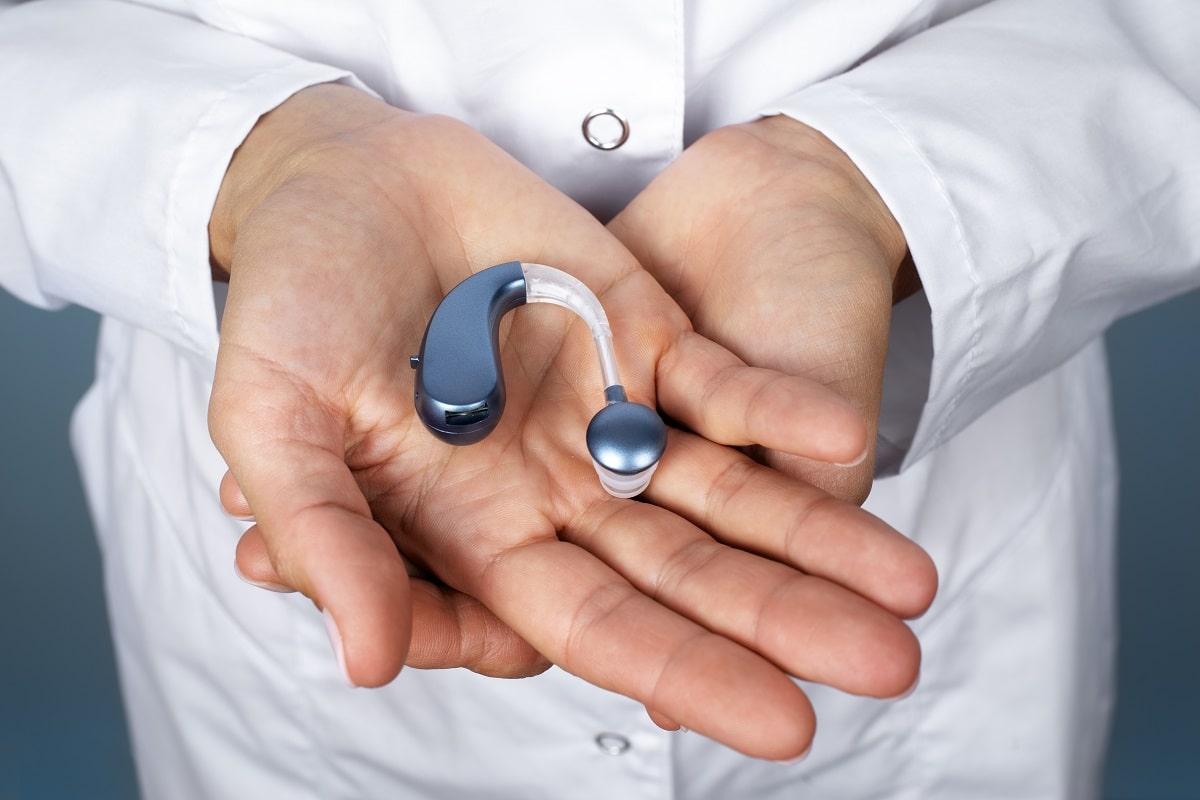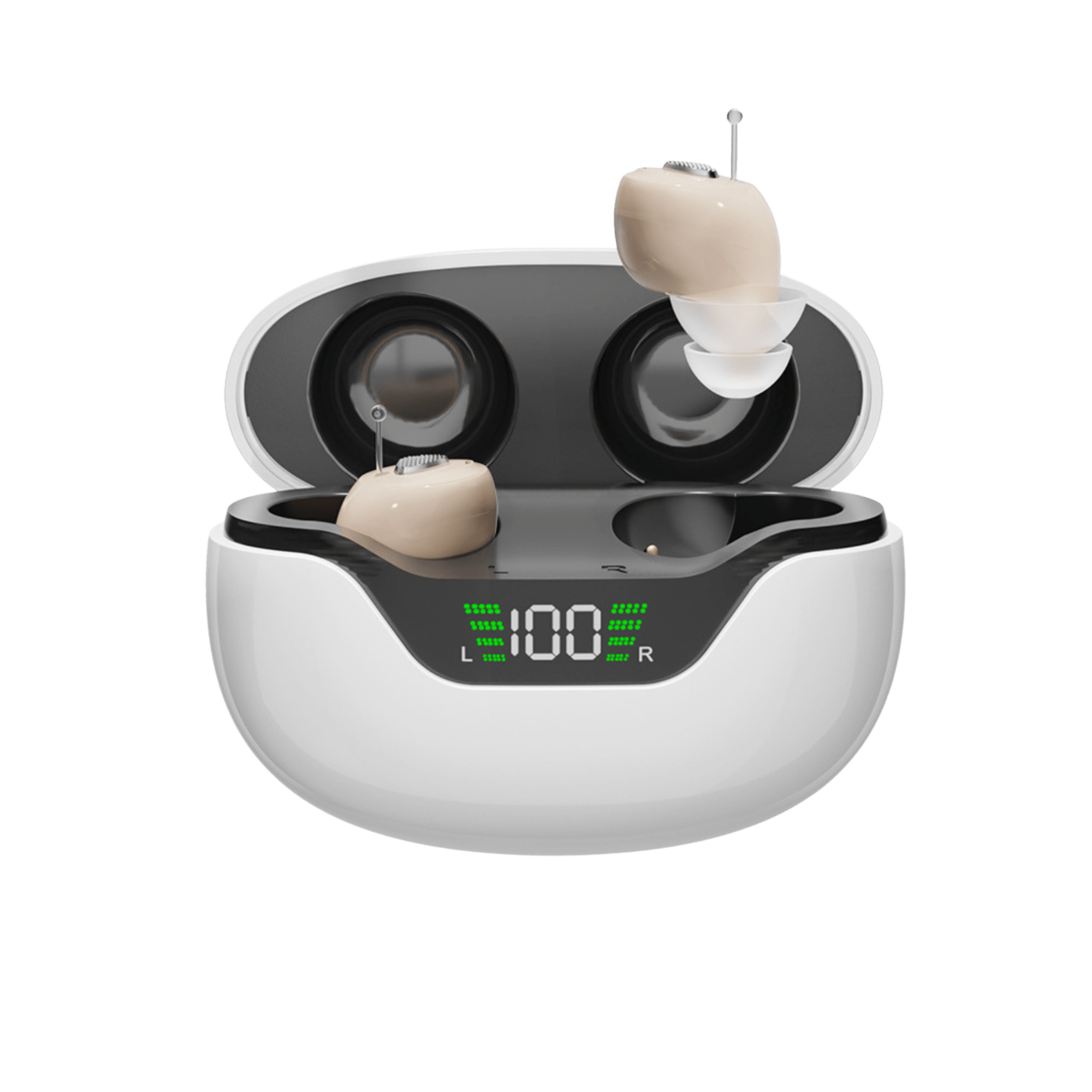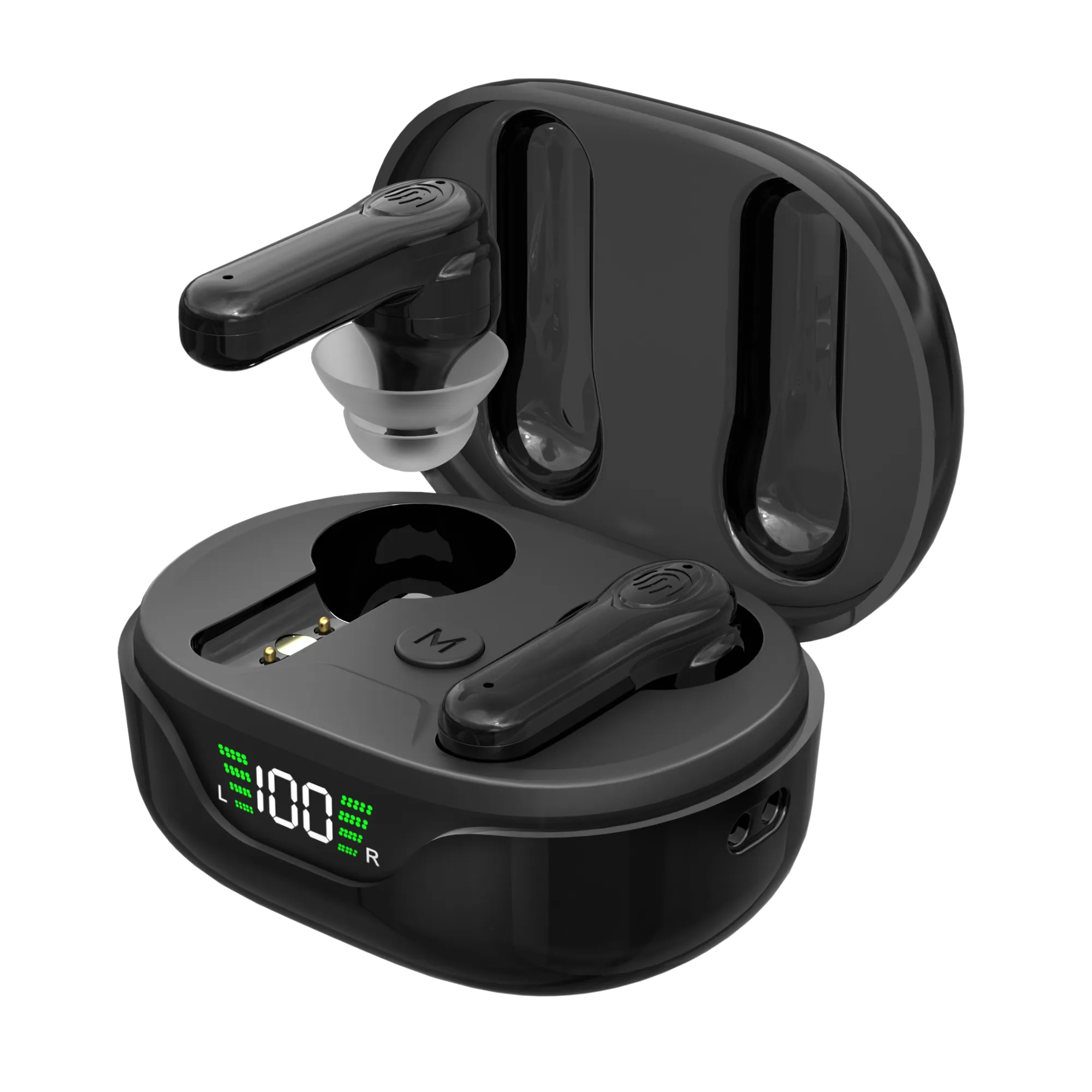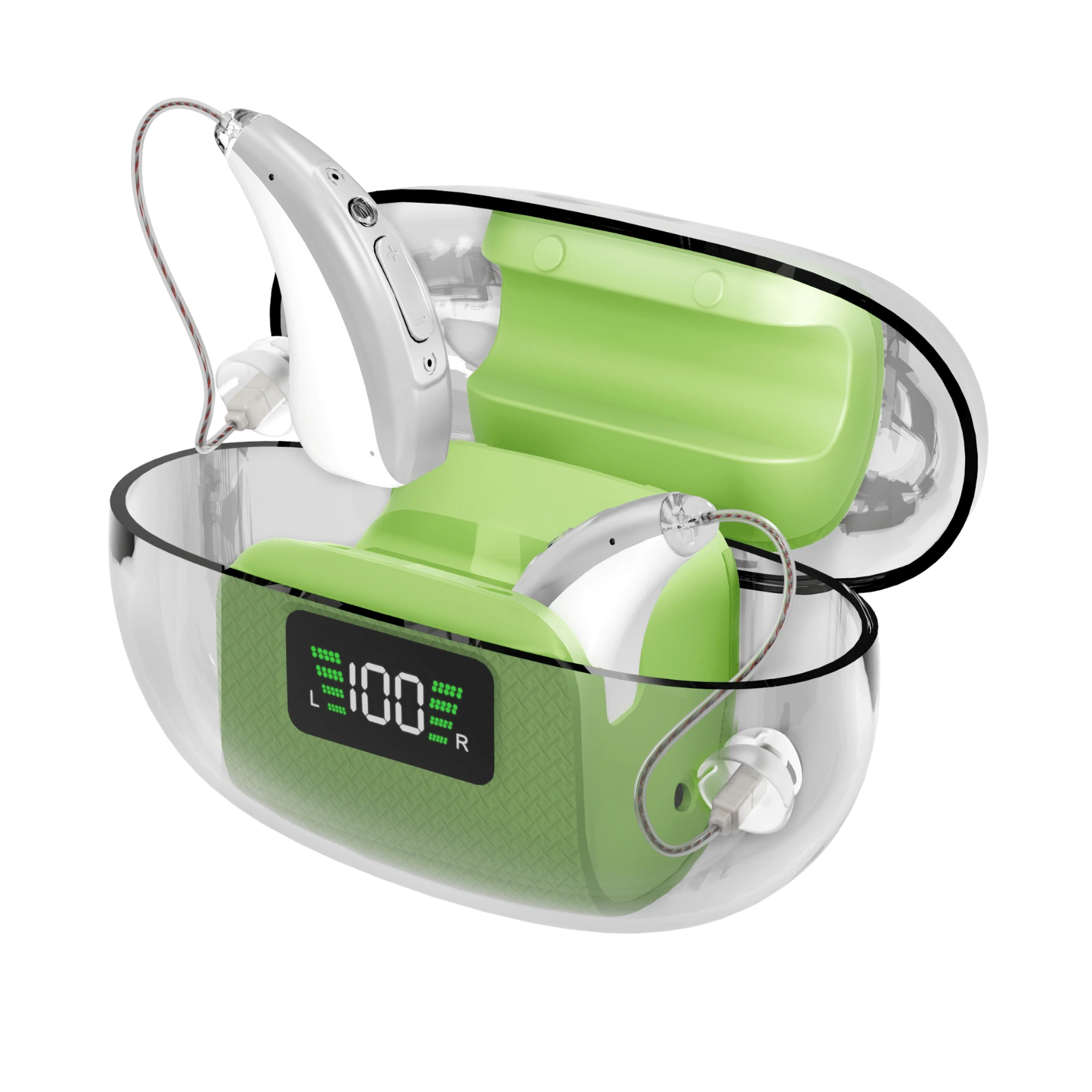Hearing loss can have a big effect on a person's life, affecting their ability to communicate, their social life, and their general health. Hearing aids, on the other hand, are an answer that has helped millions of people get their hearing back and be more involved in the world around them. This piece will explain how hearing aids work and how they can help people who have trouble hearing.
Sound Amplification:
One of the main things hearing aids do to help is to make sounds louder. The hearing aid's microphone picks up sounds from the surroundings, and the device processes and amplifies these sounds so that the person wearing it can hear them. This increase makes up for the fact that people with hearing loss are less sensitive to sounds, so they can hear softer sounds and hear better overall.
Improved Speech Clarity:
Hearing aids are made to make speech clearer, which makes it easier for people to follow talks. Several features and tools help them do this:
Directional mics: Many hearing aids come with directional microphones that focus on sounds coming from the front while reducing background noise from other directions. This function helps make speech easier to understand by making the signal-to-noise ratio better.
Noise reduction: Hearing aids use algorithms to cut down on background noise, like the hum of an air conditioner or the chatter in a busy room. Hearing aids can make speech clearer and talks easier to follow by reducing background noise.
Speech Enhancement Algorithms: Speech enhancement algorithms are part of current hearing aids' advanced digital processing. These algorithms study speech frequencies and boost some of them to make speech sounds clearer and easier to pick out from other sounds.
Personalization and customization:
Hearing aids don't come in one size that works for everyone. They can be changed and made unique to meet the wants of each person. Here are some ways hearing aids can be adjusted to fit the person who wears them:
Hearing aid fitting: A hearing health worker does a full evaluation to find out what kind and how much hearing loss there is. Based on the results, they choose and fit the best hearing aids for each person, making sure that they are comfortable and work well.
Programming: Hearing aids can be set up and changed to fit the needs of each person who wears them. The expert adjusts the settings to match the wearer's hearing loss and personal tastes.
Multiple Listening Programs: Many hearing aids have more than one listening program that can be changed to fit different situations, such as quiet places, loud places, or listening to music. The person who wears the device can switch between these programs to improve their hearing in different scenarios.
Wireless Connectivity: Some hearing aids can connect to other devices, like smartphones, TVs, and audio streaming devices, through wireless connections. This connectivity lets audio material be streamed directly to the hearing aids, which makes listening better.
Better safety and understanding of the situation:
Hearing loss can make people less safe and less aware of their surroundings because they might not hear important sounds. But hearing aids help with these problems:
Sounds in the Environment: Hearing aids help people hear important sounds like sirens, alarms, and cars coming up behind them. This makes people safer by letting them know how to respond to possible dangers.
Communication in Noisy Places: Hearing aids help people understand talks in noisy places by lowering background noise and making speech clearer. This is especially helpful when directions or warnings about safety need to get across clearly.
Better mental function:
Hearing loss that isn't handled has been linked to memory loss and a higher risk of getting diseases like dementia. Using hearing aids, on the other hand, can improve brain function:
Cognitive Stimulation: Hearing aids help stimulate the brain by making sound signals clearer and improving auditory information. Processing and interpreting sounds keeps the brain busy, which improves cognitive function and may reduce the chance of mental decline.
Social Engagement: Hearing aids help people communicate and engage with others better, which is important for keeping their minds healthy. Having conversations, doing things, and keeping in touch with people all help keep your mind active and your well-being high.
Quality of life and emotional health:
Losing your hearing can have a big effect on your mental health and quality of life. Hearing aids have perks that go beyond restoring hearing:
Better Communication and Relationships: Hearing aids allow people to take part in talks and get back in touch with friends and family. This makes relationships stronger, makes people feel less alone, and improves their general emotional well-being.
Hearing aids help people feel better about themselves in social situations. Being able to hear and understand others without constantly asking them to repeat themselves boosts self-confidence and makes it easier to take part in different activities.
Hearing aids help people enjoy daily sounds like birds chirping, music playing, and people laughing again. This return of hearing makes life more enjoyable and better overall.
Conclusion:
Hearing aids are life-changing tools that help people with hearing loss hear again and get involved in the world around them. Hearing aids improve communication, safety, cognitive function, emotional well-being, and general quality of life by making sounds louder, making speech clearer, and addressing specific hearing needs. If you or someone you know is having trouble hearing, talk to a professional about your choices and start a journey to rediscover the joy of hearing.
Sound Amplification:
One of the main things hearing aids do to help is to make sounds louder. The hearing aid's microphone picks up sounds from the surroundings, and the device processes and amplifies these sounds so that the person wearing it can hear them. This increase makes up for the fact that people with hearing loss are less sensitive to sounds, so they can hear softer sounds and hear better overall.
Improved Speech Clarity:
Hearing aids are made to make speech clearer, which makes it easier for people to follow talks. Several features and tools help them do this:
Directional mics: Many hearing aids come with directional microphones that focus on sounds coming from the front while reducing background noise from other directions. This function helps make speech easier to understand by making the signal-to-noise ratio better.
Noise reduction: Hearing aids use algorithms to cut down on background noise, like the hum of an air conditioner or the chatter in a busy room. Hearing aids can make speech clearer and talks easier to follow by reducing background noise.
Speech Enhancement Algorithms: Speech enhancement algorithms are part of current hearing aids' advanced digital processing. These algorithms study speech frequencies and boost some of them to make speech sounds clearer and easier to pick out from other sounds.
Personalization and customization:
Hearing aids don't come in one size that works for everyone. They can be changed and made unique to meet the wants of each person. Here are some ways hearing aids can be adjusted to fit the person who wears them:
Hearing aid fitting: A hearing health worker does a full evaluation to find out what kind and how much hearing loss there is. Based on the results, they choose and fit the best hearing aids for each person, making sure that they are comfortable and work well.
Programming: Hearing aids can be set up and changed to fit the needs of each person who wears them. The expert adjusts the settings to match the wearer's hearing loss and personal tastes.
Multiple Listening Programs: Many hearing aids have more than one listening program that can be changed to fit different situations, such as quiet places, loud places, or listening to music. The person who wears the device can switch between these programs to improve their hearing in different scenarios.
Wireless Connectivity: Some hearing aids can connect to other devices, like smartphones, TVs, and audio streaming devices, through wireless connections. This connectivity lets audio material be streamed directly to the hearing aids, which makes listening better.
Better safety and understanding of the situation:
Hearing loss can make people less safe and less aware of their surroundings because they might not hear important sounds. But hearing aids help with these problems:
Sounds in the Environment: Hearing aids help people hear important sounds like sirens, alarms, and cars coming up behind them. This makes people safer by letting them know how to respond to possible dangers.
Communication in Noisy Places: Hearing aids help people understand talks in noisy places by lowering background noise and making speech clearer. This is especially helpful when directions or warnings about safety need to get across clearly.
Better mental function:
Hearing loss that isn't handled has been linked to memory loss and a higher risk of getting diseases like dementia. Using hearing aids, on the other hand, can improve brain function:
Cognitive Stimulation: Hearing aids help stimulate the brain by making sound signals clearer and improving auditory information. Processing and interpreting sounds keeps the brain busy, which improves cognitive function and may reduce the chance of mental decline.
Social Engagement: Hearing aids help people communicate and engage with others better, which is important for keeping their minds healthy. Having conversations, doing things, and keeping in touch with people all help keep your mind active and your well-being high.
Quality of life and emotional health:
Losing your hearing can have a big effect on your mental health and quality of life. Hearing aids have perks that go beyond restoring hearing:
Better Communication and Relationships: Hearing aids allow people to take part in talks and get back in touch with friends and family. This makes relationships stronger, makes people feel less alone, and improves their general emotional well-being.
Hearing aids help people feel better about themselves in social situations. Being able to hear and understand others without constantly asking them to repeat themselves boosts self-confidence and makes it easier to take part in different activities.
Hearing aids help people enjoy daily sounds like birds chirping, music playing, and people laughing again. This return of hearing makes life more enjoyable and better overall.
Conclusion:
Hearing aids are life-changing tools that help people with hearing loss hear again and get involved in the world around them. Hearing aids improve communication, safety, cognitive function, emotional well-being, and general quality of life by making sounds louder, making speech clearer, and addressing specific hearing needs. If you or someone you know is having trouble hearing, talk to a professional about your choices and start a journey to rediscover the joy of hearing.





